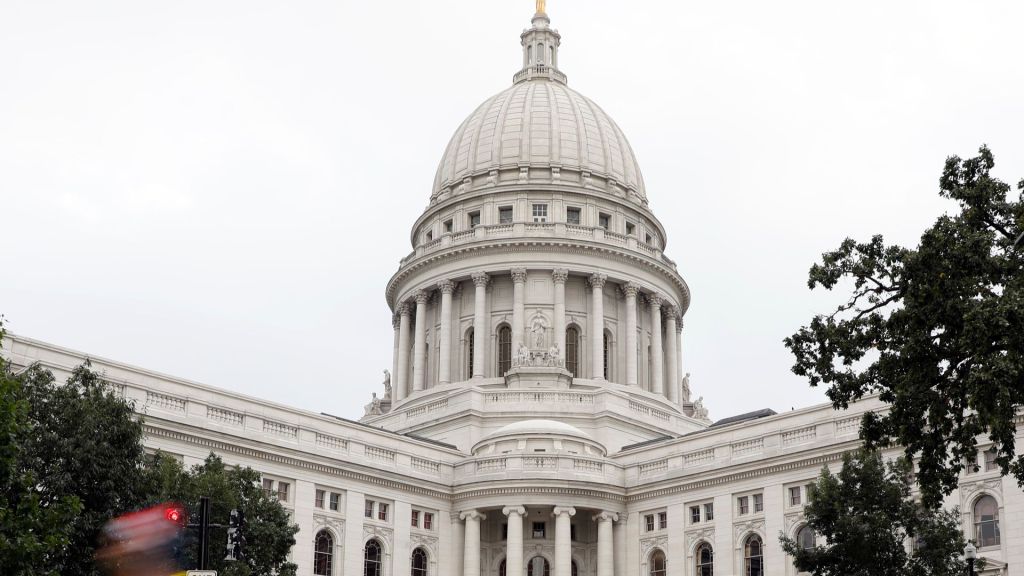[Ray Bogan]
2023 was a historic year in the House of Representatives. It included 19 votes to elect two Speakers, an expulsion, and the opening of an impeachment inquiry.
[Majority Leader Steve Scalise, R-La.]
“It’s been an up and down year. I know for those of you in the press there’s never been a week where it was boring for you,” Majority Leader Steve Scalise, R-La., said during a recent press conference.
[Ray Bogan]
House Republicans won a majority in the 2022 midterms and used it to pass bills including HR1 to increase domestic energy production, HR2 to strengthen border security and what they call a ‘Parental Bill of Rights’ pertaining to children’s education.
But Democrats didn’t have any input on those bills, so none of them passed the Senate or were signed into law by President Biden.
In fact, only 20 laws and two resolutions were signed by the President this year, compared to 81 when Republicans took control of the House during the Obama administration in 2011. A review of the Congressional record revealed this was the single least productive Congress in at least 50 years.
[Majority Leader Steve Scalise, R-La.]
“When you think about all the bills that we passed over to the senate to address the problems that struggling families are facing, the senate at some point is going to have to start taking up those bills and start taking some action,” Scalise said.
[Ray Bogan]
Democrats are openly mocking Republicans about the year that was.
[Rep. Jared Moskowitz, D-Fla.]
“They’ve just crushed it with their accomplishments of expelling a member and removing a speaker,” Rep. Jared Moskowitz, D-Fla., said.
[Rep. Eric Swalwell, D-Calif.]
“An absolute s**t show. You saw Republicans bring chaos, Democrats brought competence. On everything that mattered, the majority of the votes came from Democrats,” Rep. Eric Swalwell, D-Calif., told reporters.
[Ray Bogan]
Swalwell is talking about the debt ceiling vote extending the $33.8 trillion national debt to allow the government to borrow money to pay its bills. He’s also referring to a pair of votes on continuing resolutions to fund the government and avoid a shutdown.
It’s true that more Democrats voted for those measures than Republicans. But Democrats also provided a majority of the votes to oust former Speaker Kevin McCarthy, R-Calif., which brought the chamber to a halt for three weeks. Eight Republicans voted with 208 Democrats, and McCarthy let them hear it.
[Kevin McCarthy, R-Calif.]
“They brought chaos to Congress and now they’ve tried to stymie our ability to have continuity of Congress which I think is a real problem that the Democrats have done,” McCarthy said in October.
[Ray Bogan]
Republicans also contend that while it isn’t always pretty, their way of conducting business has its benefits.
[Rep. Byron Donalds, R-Fla.]
“A very open and deliberative process that has been member driven. And I think that, you know, the American people would say ‘Oh my gosh, look at all the tumult.’ No, what you’re seeing is democracy in action for real,” Rep. Byron Donalds, R-Fla., said. “What you’re seeing is getting away from leadership, or the speaker’s office of the senate majority leader’s office making all the decisions, and then your member of congress getting a cattle call to go press a button.”
[Ray Bogan]
Donalds is talking about a criticism of Democrats. They vote in unison, but some members don’t agree with what they’re voting for. They vote the way they’re told by party leaders like former Speaker Nancy Pelosi, D-Calif. Multiple sources have confirmed that’s true.
But whether it be a debate about spending or trying to get a new speaker elected, Republicans have not been afraid to voice their frustration.
[Rep. Tim Burchett, R-Tenn.]
“Everybody says what’s your biggest surprise when you got to congress? That I wasn’t surprised,” Rep. Tim Burchett, R-Tenn., said.
[Rep. Ralph Norman, R-S.C.]
“Well it just wasn’t anything meaningful. We major in the minor. Congress majors in the minor. We ought to be up here really this month, even through Christmas, on the spending. We’re not doing that. Very frustrating,” Rep. Ralph Norman, R-S.C., said.
[Ray Bogan]
Republicans began 2023 with a 222-212 majority, it will be 220-213 to start the new year. That may impact their ability to pass their policy priorities in 2024. But it doesn’t change what Congress must approve – like government funding and a reauthorization of the Federal Aviation Administration.











